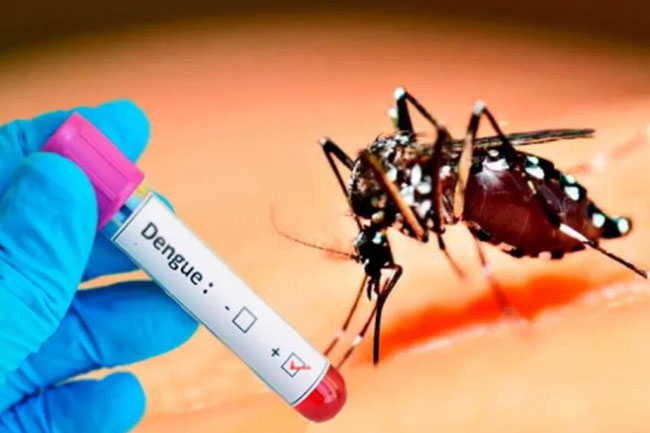The Head of the Department of Immunology, Allergy and Molecular Medicine at the University of Sri Jayewardenepura, Prof. Chandima Jeewandara says that the number of dengue cases reported in the country may increase in the near future with the new variant of dengue spreading these days.
Therefore, people should be aware of the breeding sites of dengue mosquitoes, Prof. Jeewandara mentioned.
Meanwhile, the University of Sri Jayewardenepura has carried out research on dengue antibodies in children.
Prof. Jeewandara, who mentioned that it is crucial to understand the differences in dengue seroprevalence rates in different regions in Sri Lanka, emphasizes that this research will assist in understanding the burden of infection to plan dengue vaccination programmes.
The research findings include that the overall dengue seroprevalence rate in children was 24.8%, with the highest rates reported from Trincomalee (54.3%) and the lowest rates from Badulla (14.2%), which is a high-altitude estate area.
While the seroprevalence rates were significantly higher in urban areas (35.8%) compared to rural (23.2%) and estate areas (9.4%), there was no association between seropositivity rates with population density in each district, it added.
In the meantime, President Ranil Wickremesinghe has instructed to mobilize the dengue task force to control the spread of dengue in the Western Province since the region has seen a surge in dengue cases.
President Wickremesinghe has directed the Governor of the Western Province, the Chief Secretary and the District Secretary accordingly, to mobilize the dengue task force with the support of relevant institutions and the public, in order to control the dengue spread.
Source – Adaderana.lk





